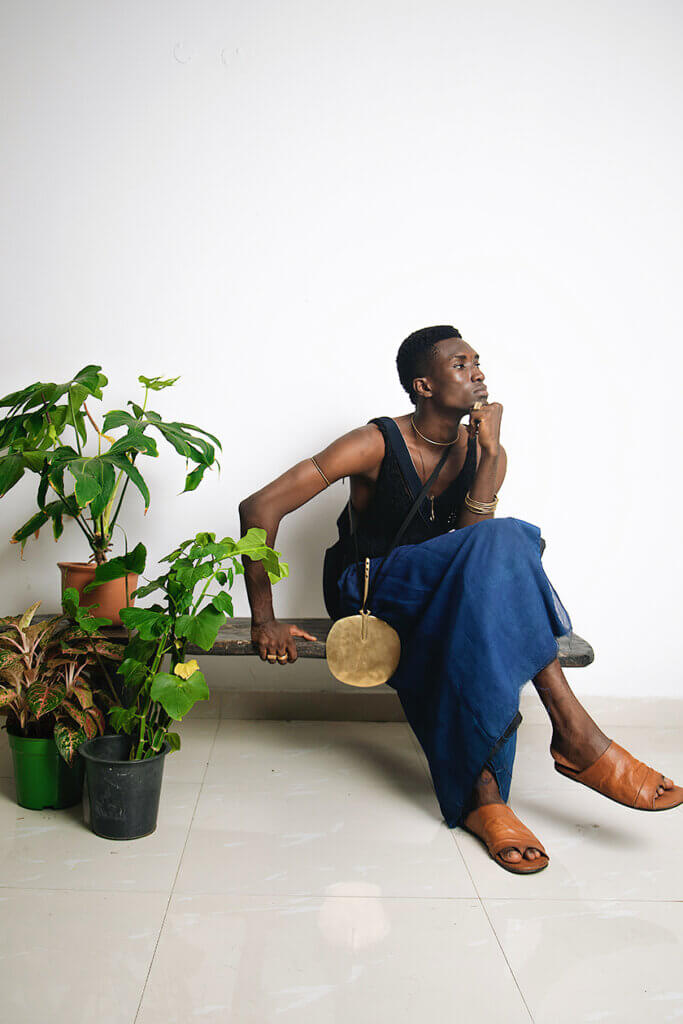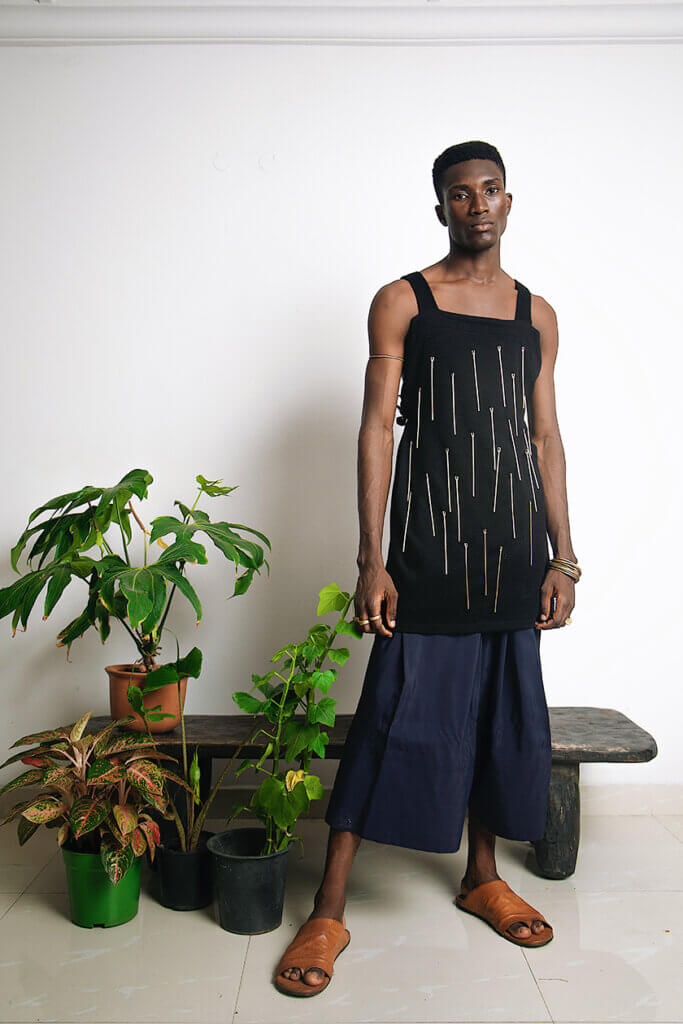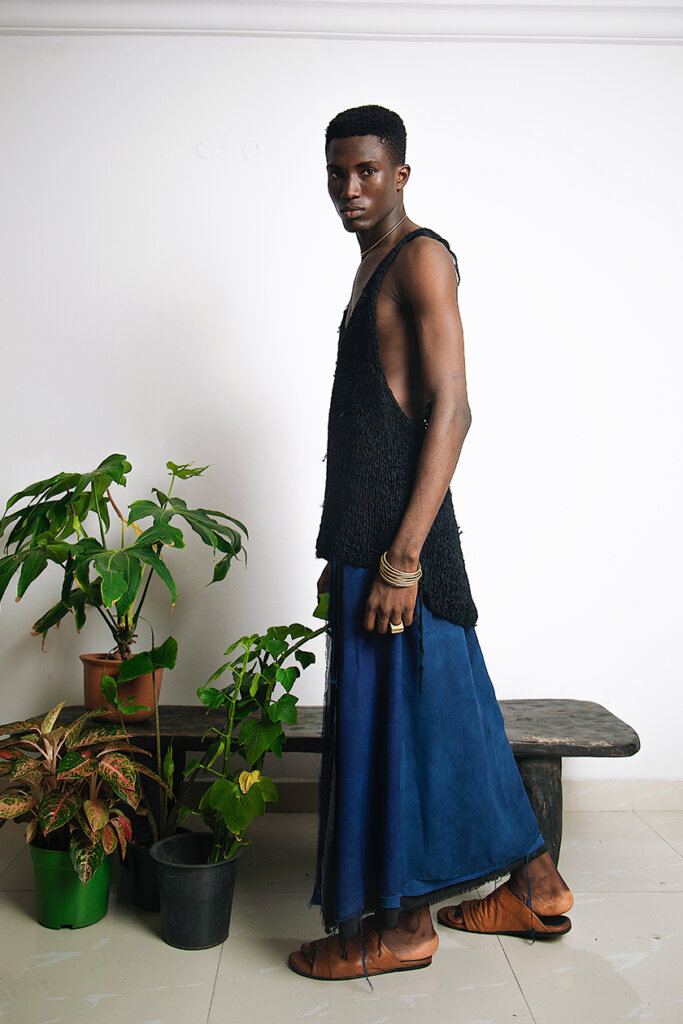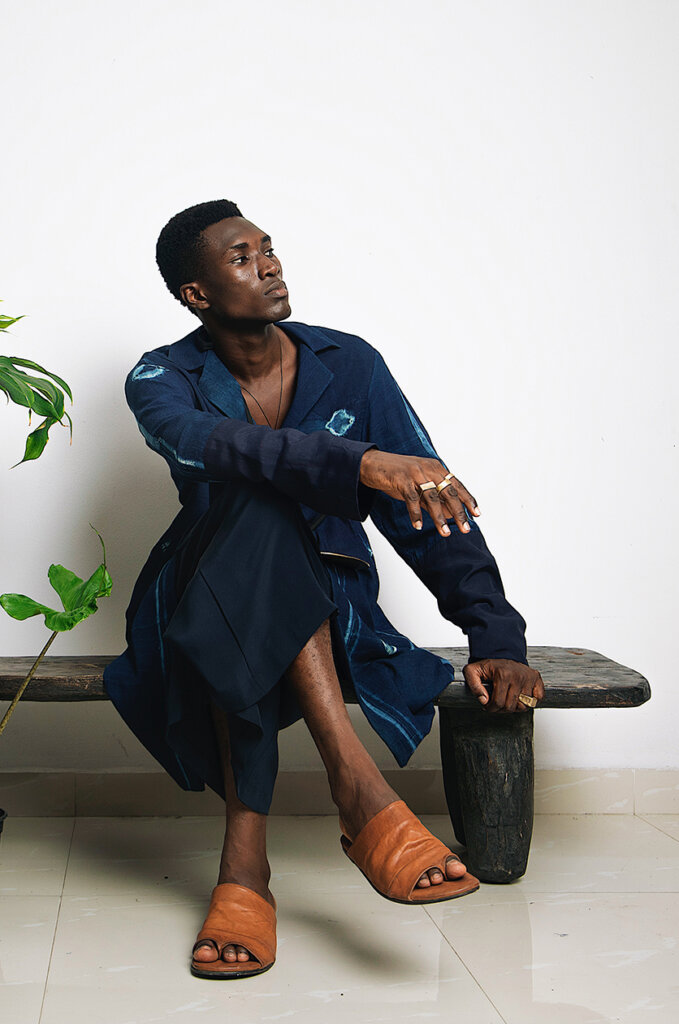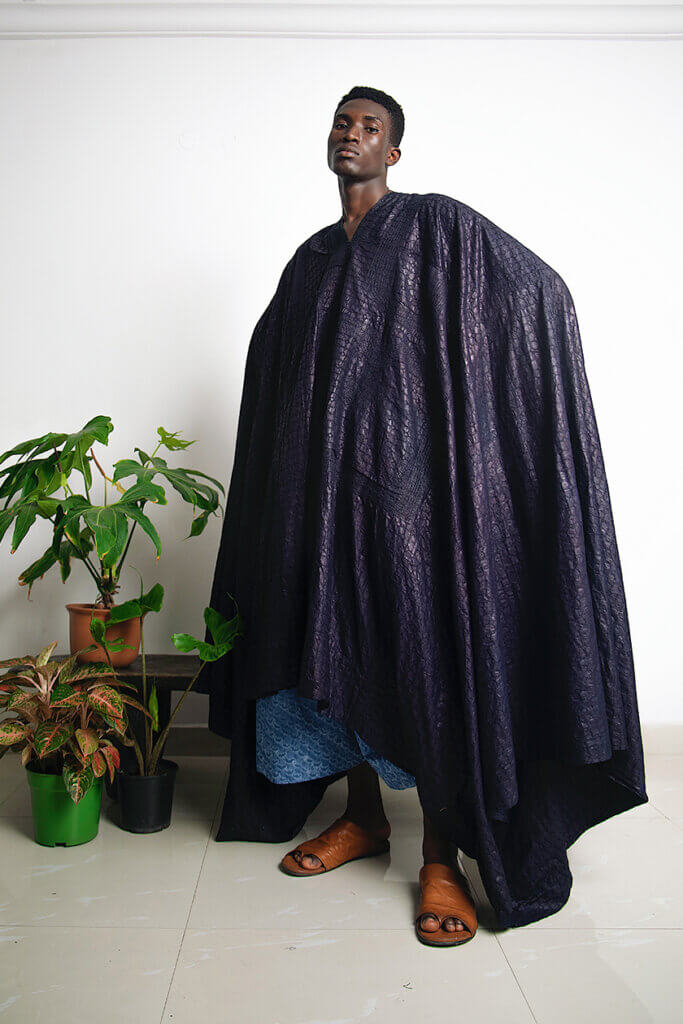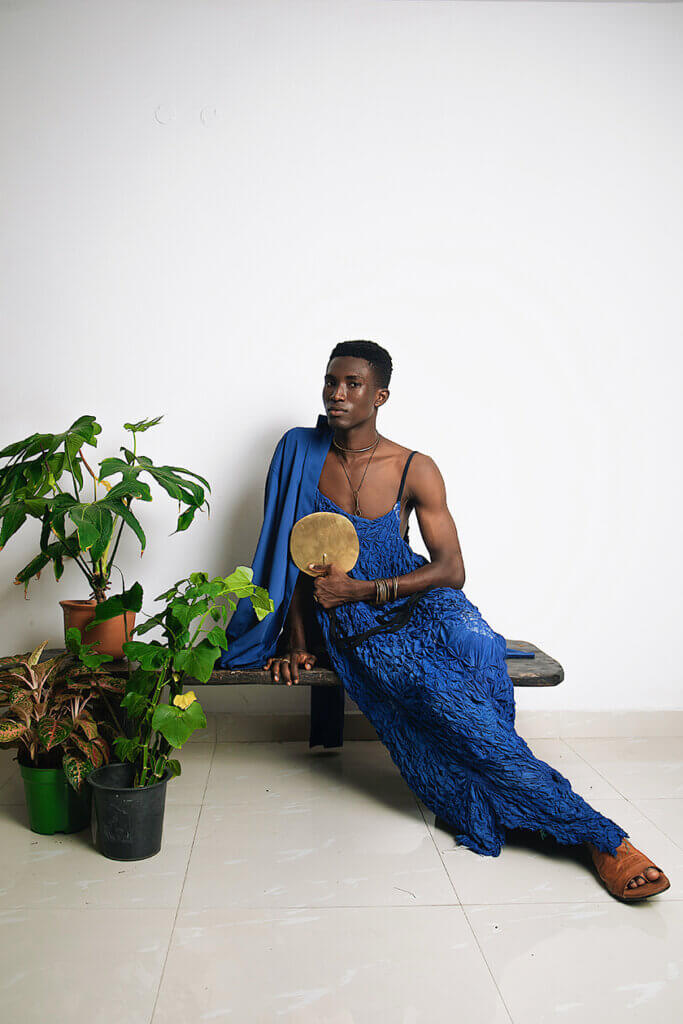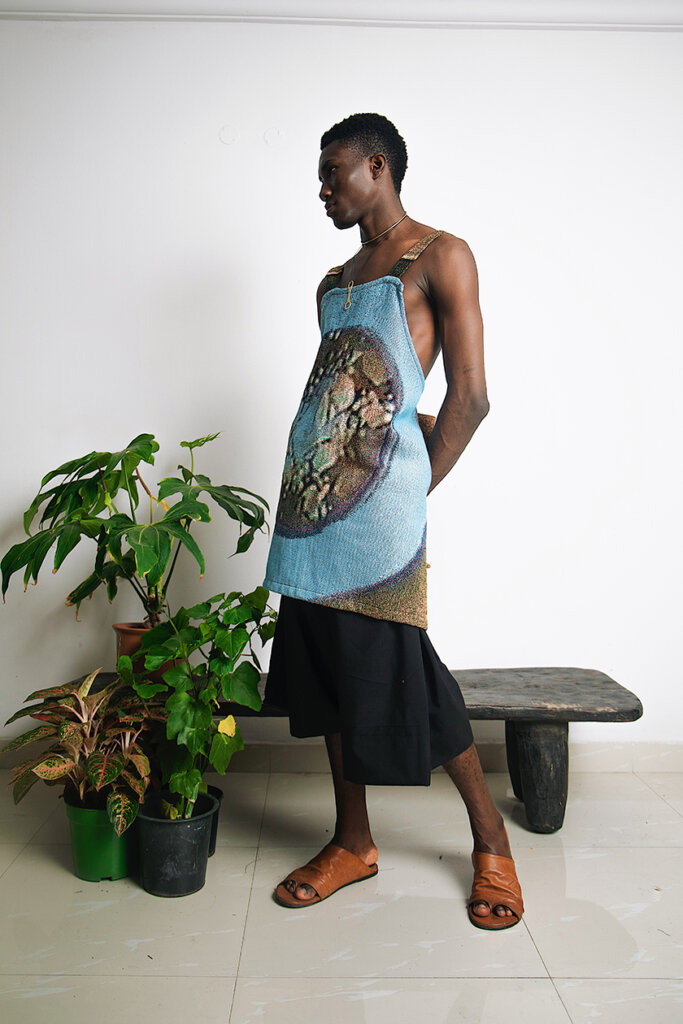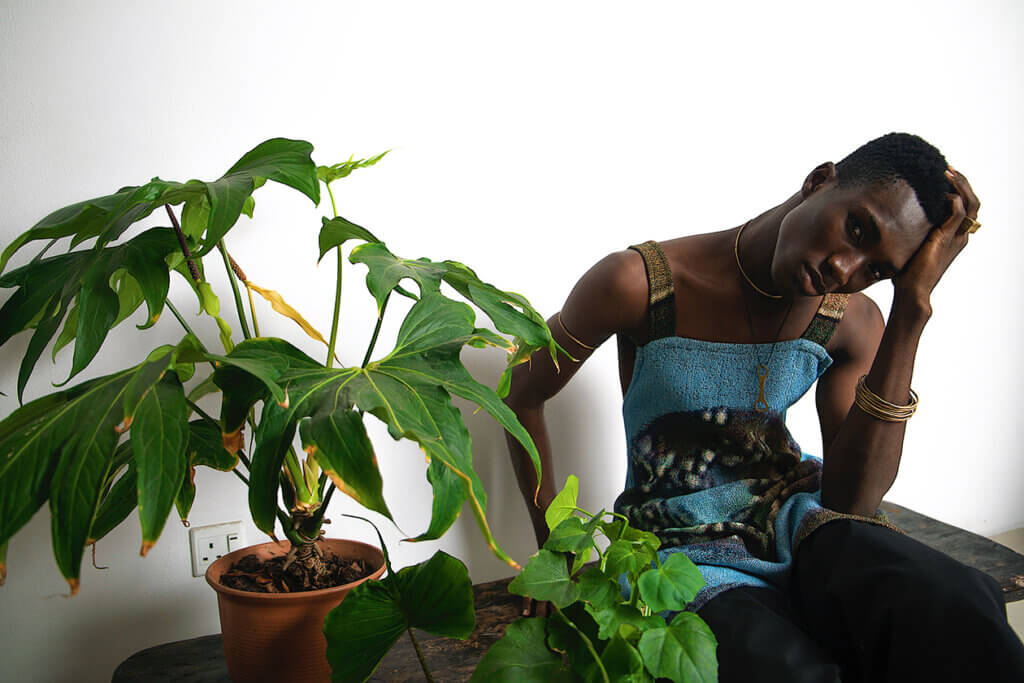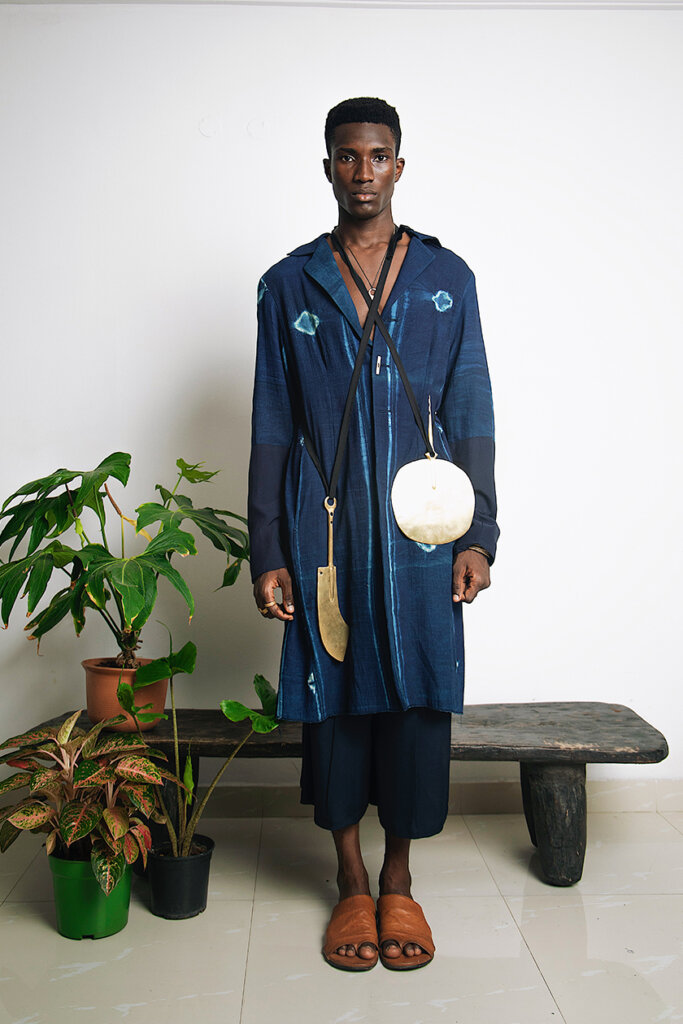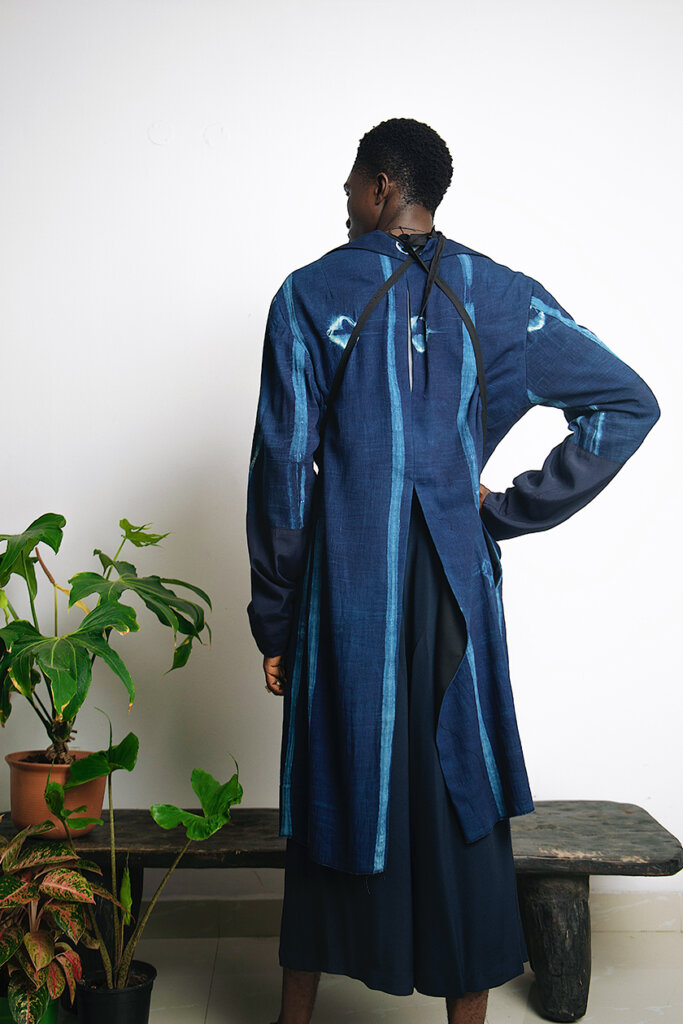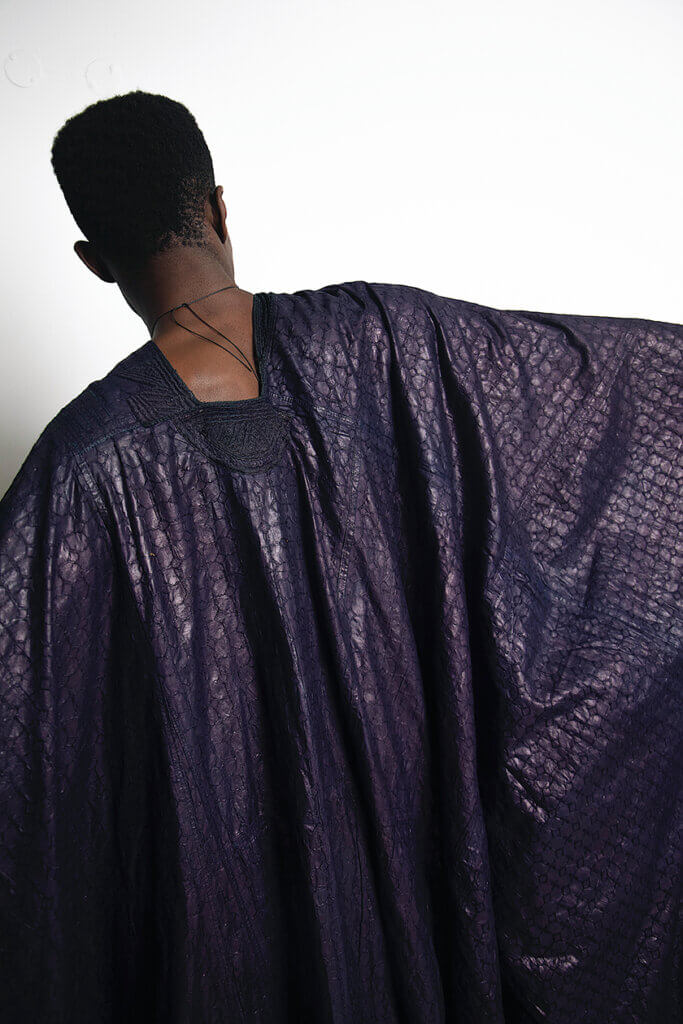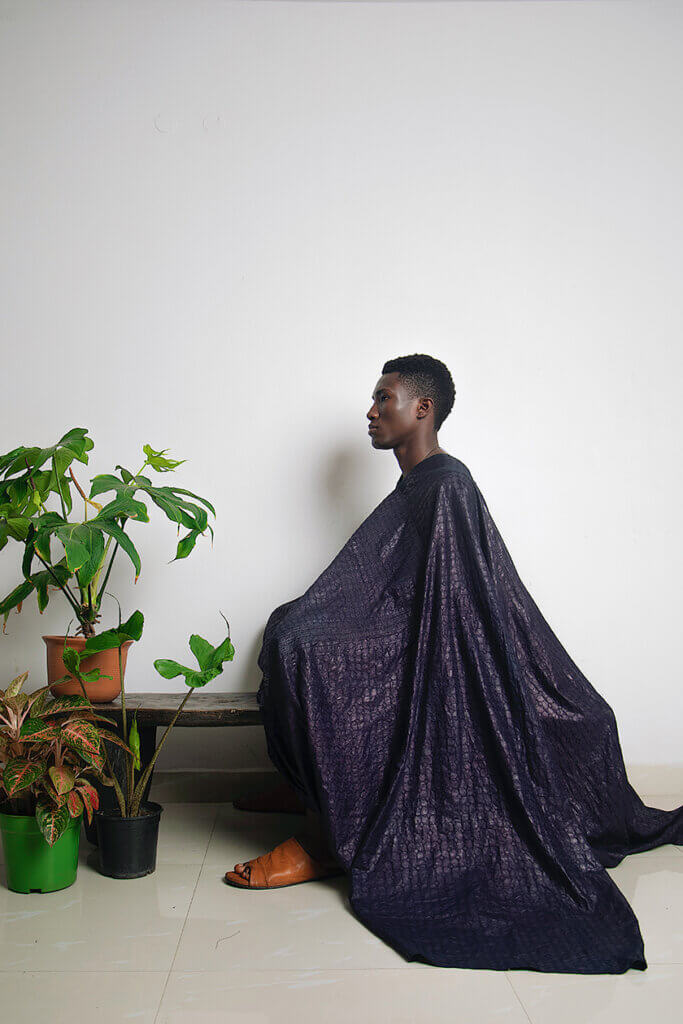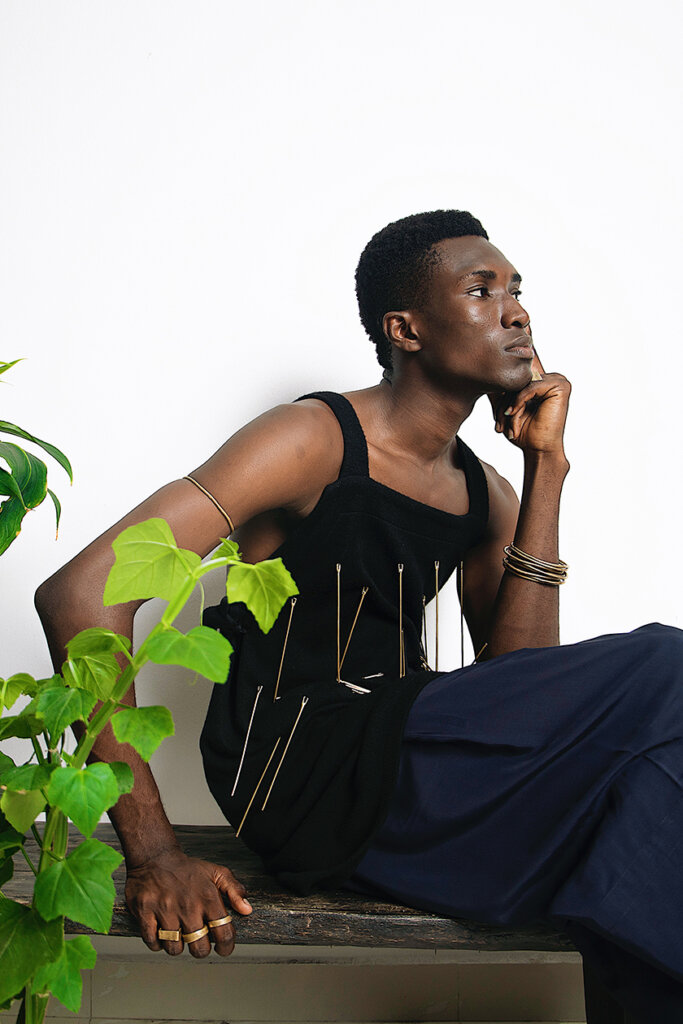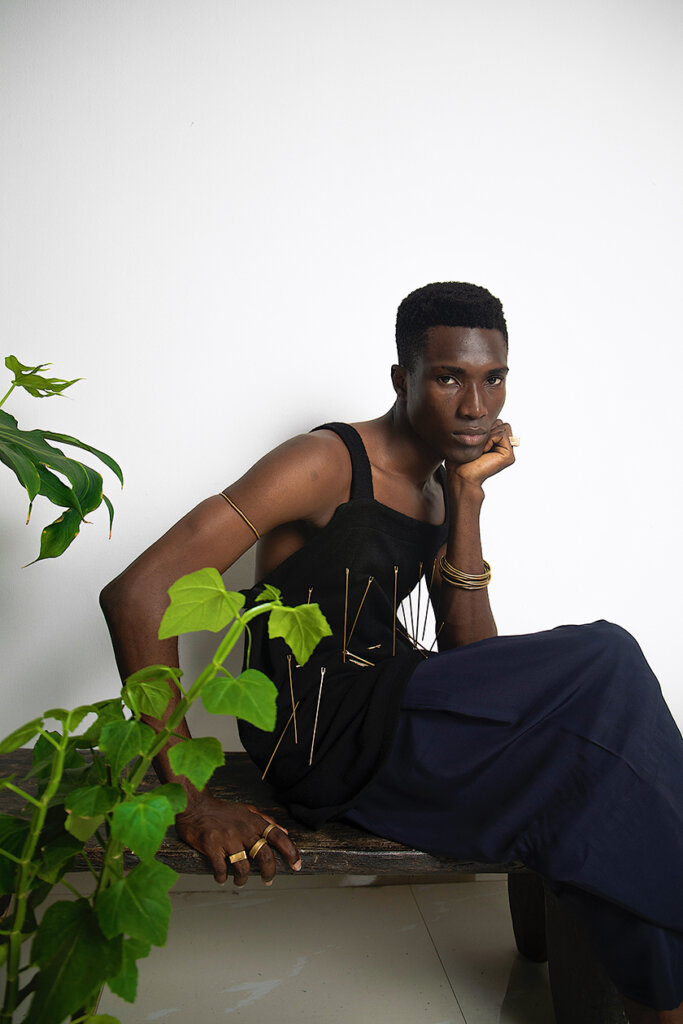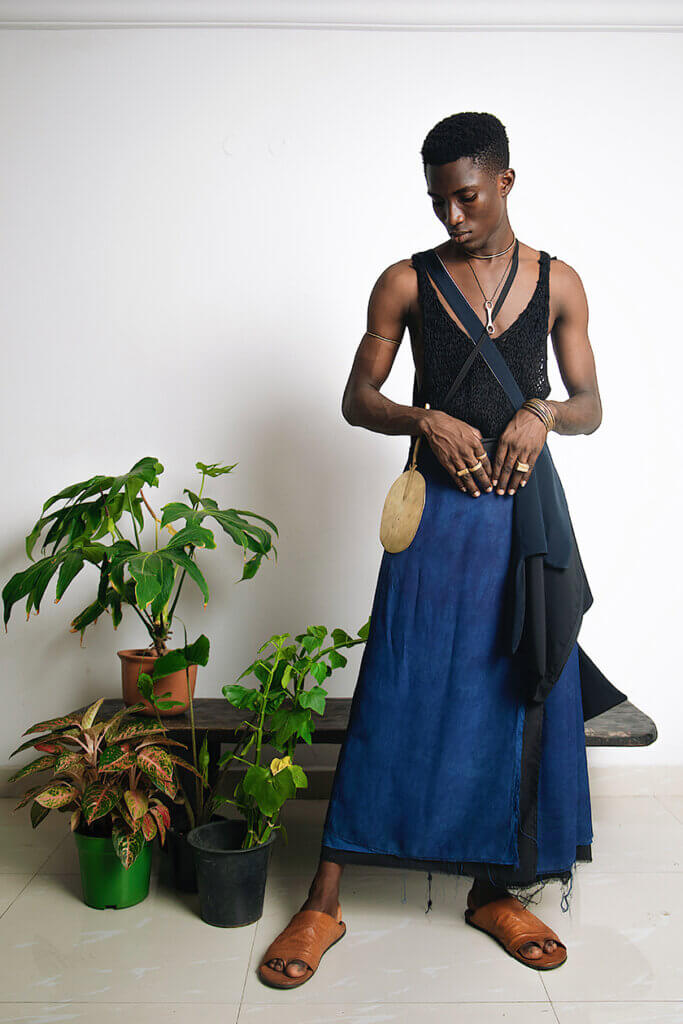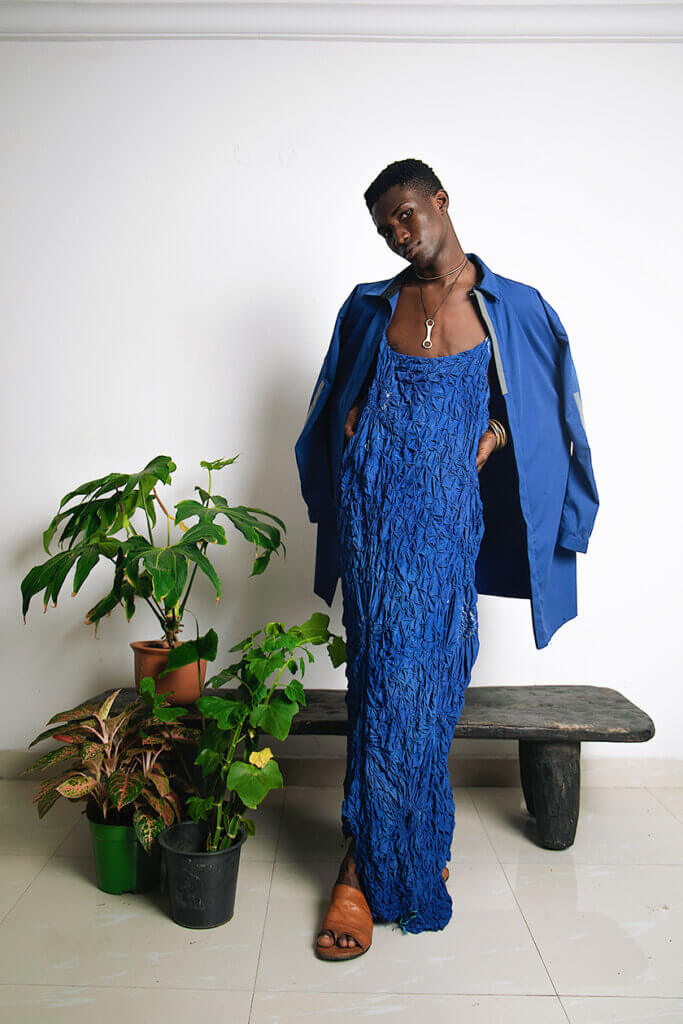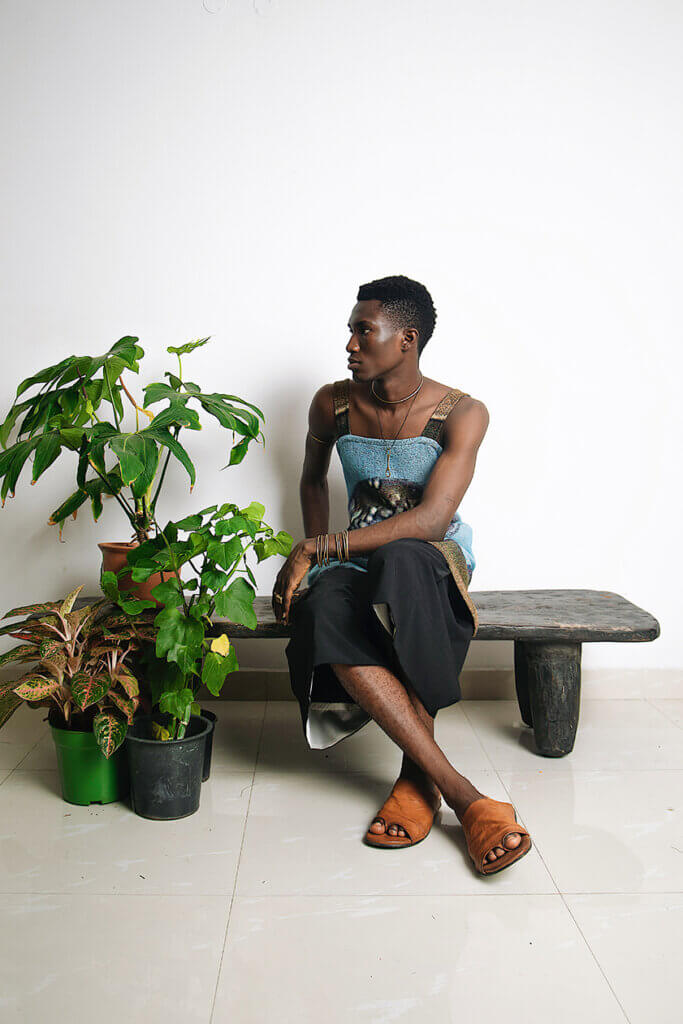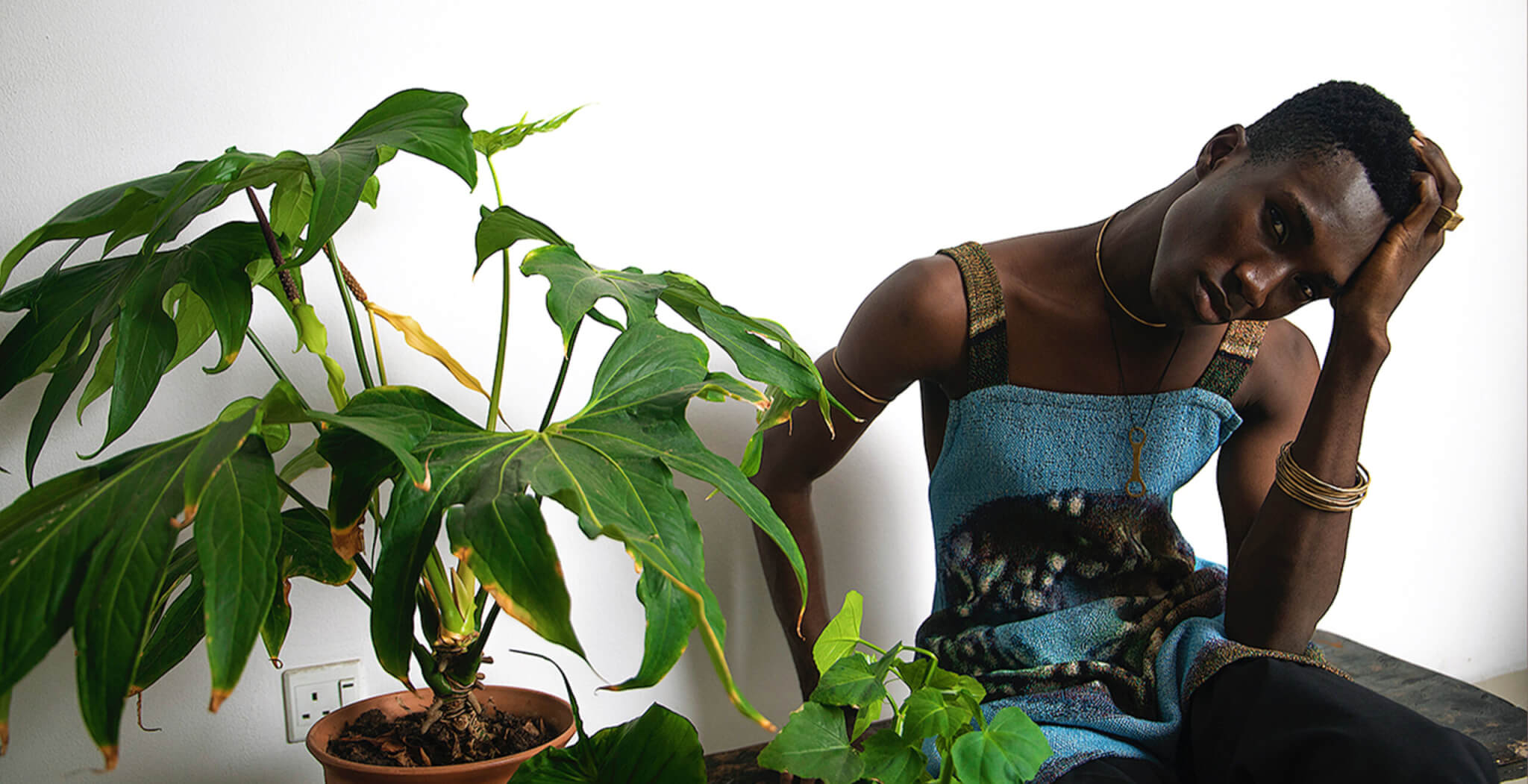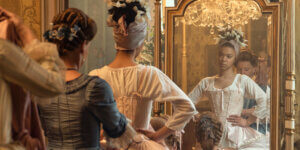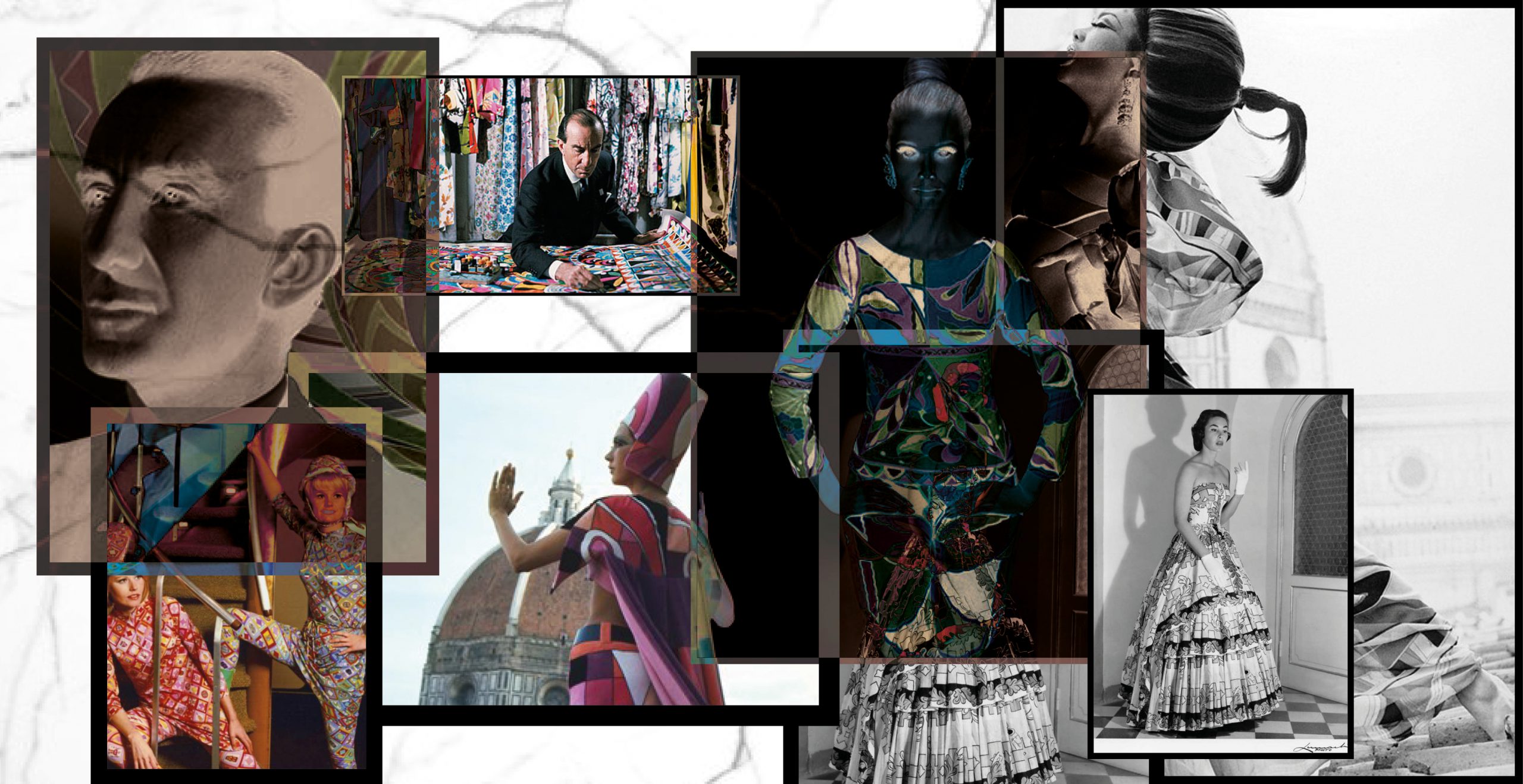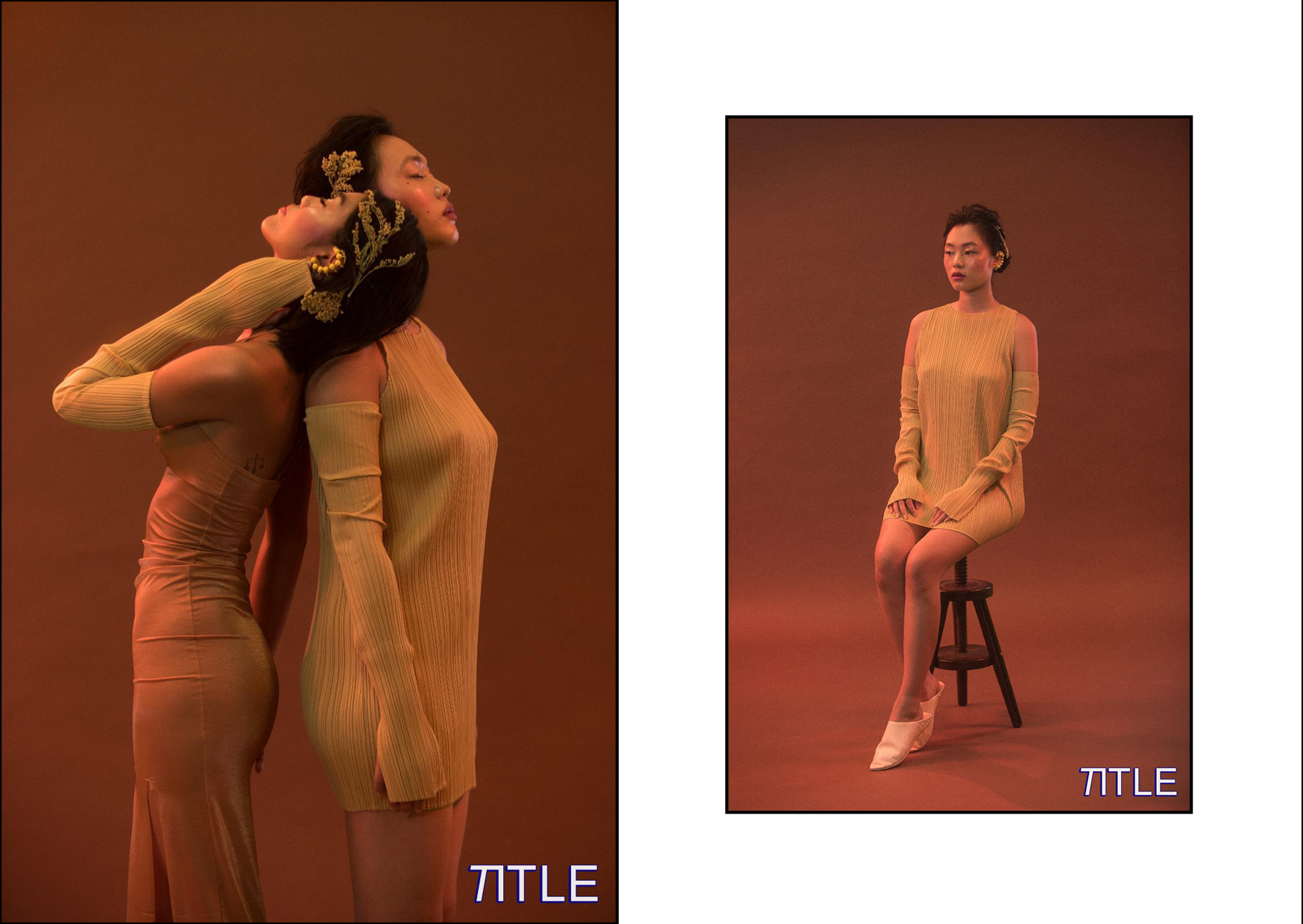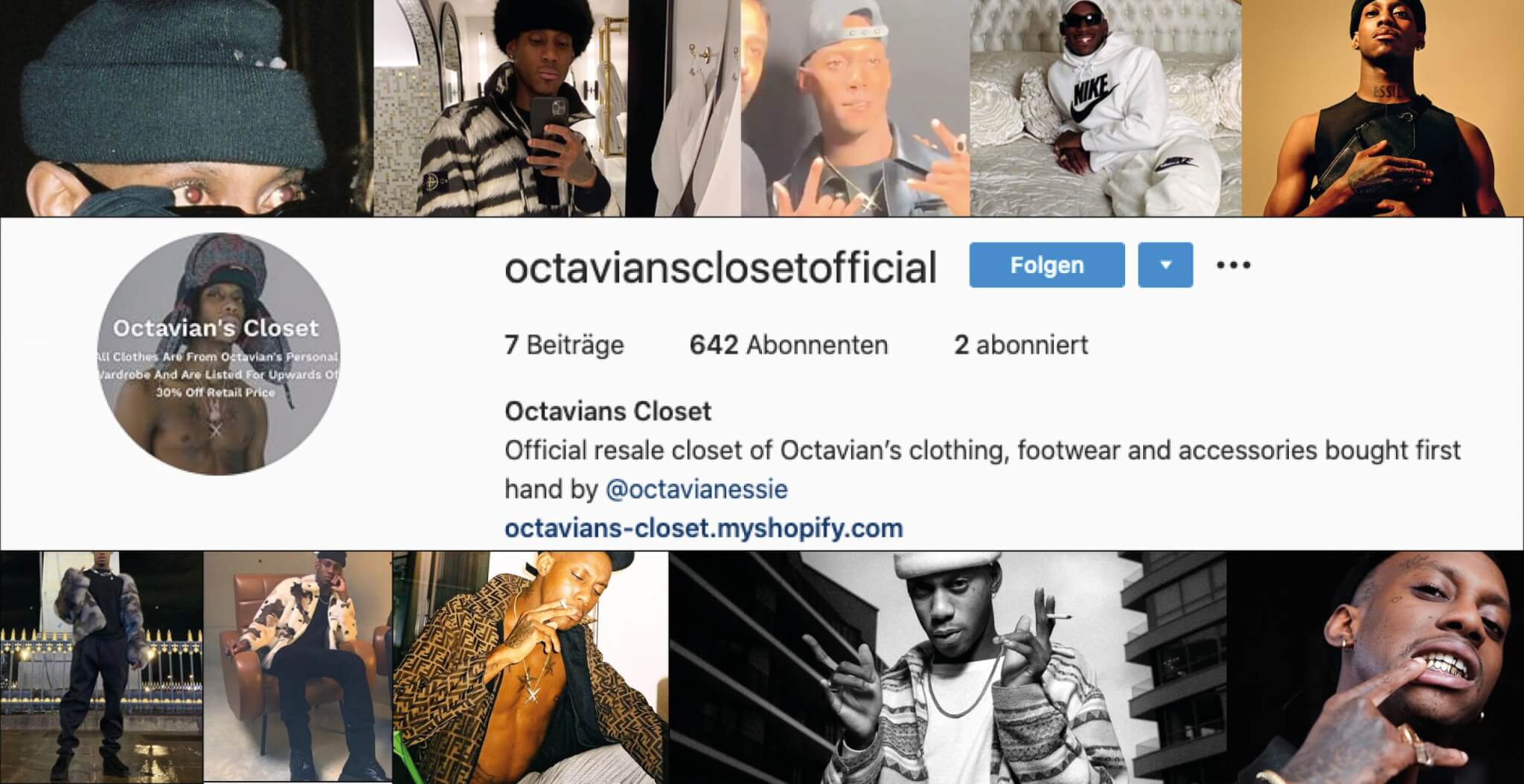“How do we all do it?” – Adeju Thompson about LSP and designing in Nigeria
by Amelie Apel
Adeju Thompson worked in fashion for over five years before founding their brand Lagos Space Programme in 2018. With their gender-neutral label, the non-binary designer wants to explore African craftsmanship and start an ethical movement as a creative collective. Sustainability and cultural preservation are the core values underlying their artisanal work.
After studying fashion in the UK but having to drop out due to expensive tuitions and returning to Nigeria where they started working with renowned fashion designers in Lagos, the now 31-year-old is one of Africa’s shining stars in fashion heaven. Being selected amongst Arise Fashion Weeks’ top eight, showcasing a collection at Milan Fashion Week and being an LVMH Prize semi-finalist are just a few of their achievements of the past two years. Meet the creative director who is an advocate for African blackness, queerness, and overall greatness.
How did you become the designer that you are now?
I did an art program in North Wales and studied fashion in Birmingham, but I didn’t finish the course and moved back to Nigeria. I was not really depressed about having to go back home. Having the privilege of getting that kind of education really opened my eyes. I started to find myself and to understand what sort of designer I wanted to be. That was quite exciting! I took my portfolio, went to designers in Lagos and applied for internships. I also went to galleries and tried to understand the city culturally. I kept on pushing and experimenting. I was on that quest to become a good designer, finetuning this point of view of mine.
When did you start your own brand?
I did many projects with different names, just as a way for me to get feedback. And when I felt ready and felt like I had something to say – it was only about three years ago – that was when Lagos Space Programme came along. Since then, it has just been an amazing opportunity, very experimental.
What is the idea behind the collective Lagos Space Programme?
Lagos Space Programme is an amazing opportunity to explore creativity. It is about collaborating and working with people from all over the world. I travel Nigeria and meet artisans, and we are having genuine collaborations and exchange of ideas and skills. These people are trained in a very formal way but are willing to experiment with me. I am grateful for that.
What are you exploring with your collections?
With every collection the level of self-doubting rises. I am having major issues around that, but it also pushes me to be a better designer. It needs external people for me to see the beauty of my work with fresh lenses and it is good for me to step back once in a while and appreciate what I have created. With the collections, I explore Lagos and my surroundings. It gets up to the point where I, as a queer person, am very aware of the politics in Nigeria. I always say Lagos Space Programme explores the sexual identities of black, queer, Yoruba persons. Every collection is me trying to understand myself more.
How is your company structured?
I have three permanent team members and people that come in and occasionally work on specific collections. Therefore, we can manage the production of our orders in house. We have two stockists in Japan and are also stocked at ALARA Store in Lagos. Our new collection is fully funded by ALARA. They are championing Lagos Space Programme and invested in the collection.
Do you use local Nigerian techniques in your designs?
Yes, with my work, I get to explore a lot of Nigerian textiles. I am fascinated by the adire, the indigo tie-dye and to dive into our cultural archive. Adire is about telling stories about the community. But as a contemporary designer, I am not curating the past, I am there to continue the conversation.
Would you consider your brand sustainable?
Sustainability is very important to me. I try to be as responsible as possible when sourcing fabrics, using natural fibers that are biodegradable and indigo dyed. I don’t work with chemical dyes, which are very harmful to the earth. We use plant-based dye. Apparently, my dyer tells me she drinks the dye as a blood cleanser! Even the metals that we are using are recycled. Our production is very local. We are supporting artisans that are not doing too well because of the shift in what is considered beautiful in Nigeria. Now it is more things that are done by machines like Ankara and lace. So, the people making adire are jobless. We are adding value and creating a livelihood for these people.
Is sustainability valued by your customers?
Yes, I think so. I think Nigerians in general are not the most responsible people when it comes to considering the climate. Climate change is a very foreign idea, and I don’t think we realize that it is a global issue. But most clients of mine are very aware. I am happy that when they buy our garments, they are getting value in so many ways, for example, they are dyed with dyes that are beneficial to your body. It is exciting to make more connections and support a lot of communities.
Do you feel like Lagos as a fashion city is a pioneer for sustainability in fashion?
Of course! There is a very artisanal approach to fashion designed in Africa, especially Nigeria. In theory, it fits because Africa has the most potential ideas. But in reality, it is really tough. The infrastructure is really bad, there is no governmental support. In Nigeria, most cultural practices put a lot of emphasis on being responsible and ethical already by default. It is already engraved in the culture. It is not that widespread anymore due to colonization, but it is in our DNA to have respect for nature. More can definitely be done, but because it is not that foreign to us in evolution, we have the power to change things, and that makes Nigeria a good sales channel for sustainable fashion. We need to create more appropriate infrastructure to enable us to work better and become more sustainable.
What challenges do you face while building a fashion brand in Nigeria?
There is a lot. Even for me, as a designer trying to create this high-end brand, it is difficult to get high-quality, responsible materials. We do not have a big textile industry anymore. It is hardly anything left. You can’t find silk in Nigeria; you have to source it from abroad. I sometimes source Nigerian cotton, but I don’t find it fine. I had the opportunity to get a good education, and a lot of designers don’t have that opportunity. A lot of people are self-taught. It is hard to get good people and good production. The big labels don’t produce in Nigeria. I know designers who produce in China or Italy because there is no infrastructure whatsoever. As a designer in Nigeria, you have to be on top of everything. You not only design but have to produce everything yourself. There is incredible talent here, but you can’t put us on one level with designers from the West because they have so much better and more infrastructure. Also, there is so much corruption. As an artist on this continent, you are on your own.
Would you say the Nigerian fashion economy has changed since you started your brand?
There is a lot of attention happening for designers from Africa like Thebe Magugu or Kenneth Ize. African designers are at the table now, proposing a new way of how to think of design. It is not about great phantasies, but about real life. More and more stockists are interested.
What do you wish for the African fashion scene?
I wish for a structure to harness the full potential of the African fashion industry. It is not taken seriously in Nigeria. So much money goes to the Western fashion market that could help designers here. Africa is not aware of that. Even in the government, when thinking about administration, the fashion sector goes by the board. It takes time, but when you compare it to the music industry, you see that it can work. Attention and stable opportunities can change something. I just got asked if I had another job. No, I don’t. And then they asked, how I am able to do it. I think that is the million-dollar question: How do we all do it?
